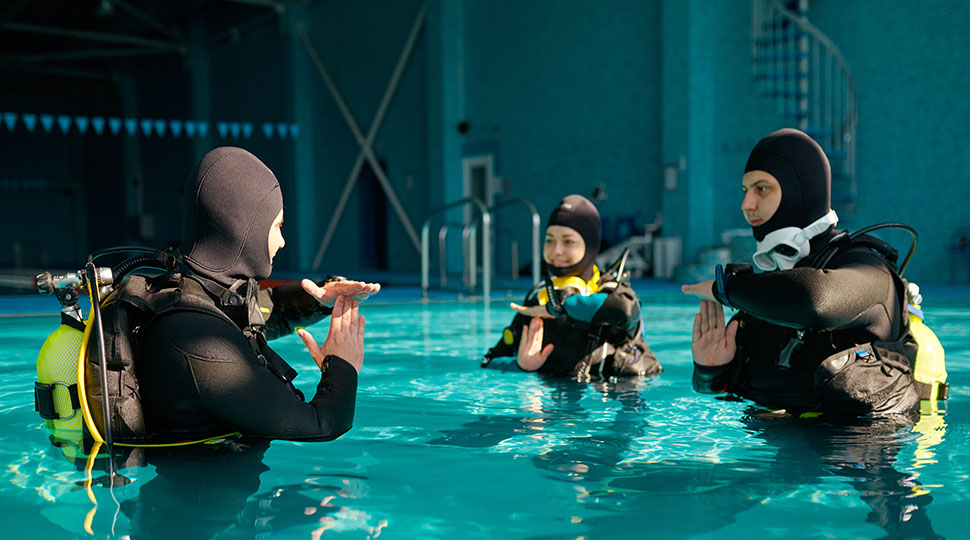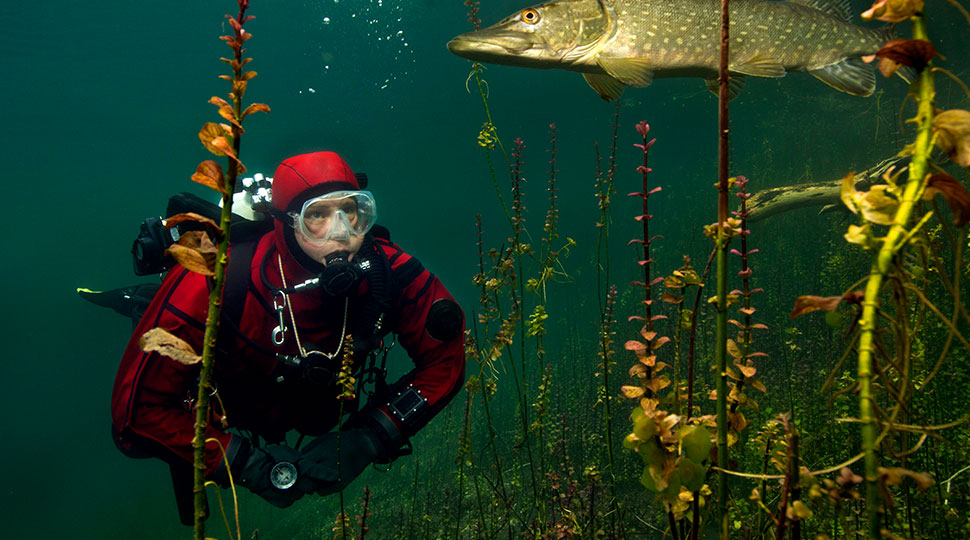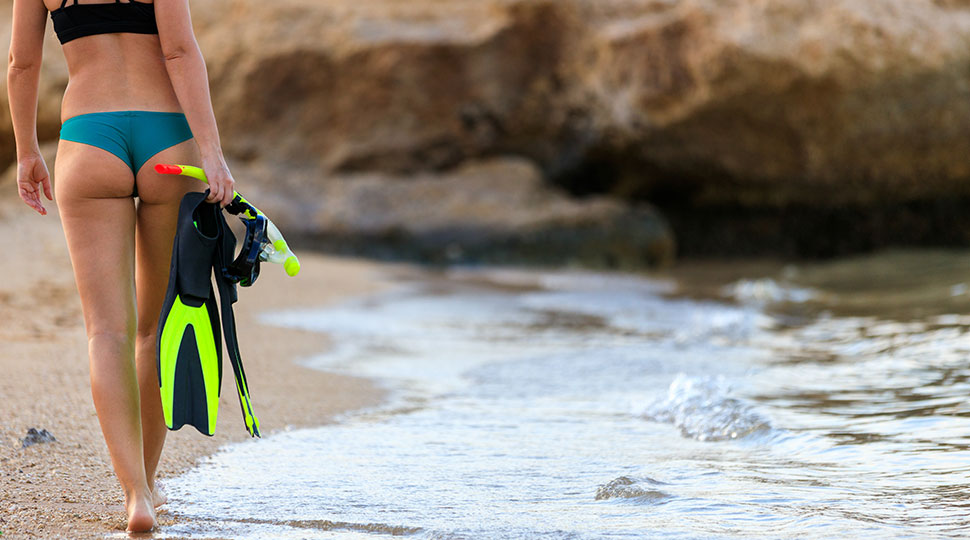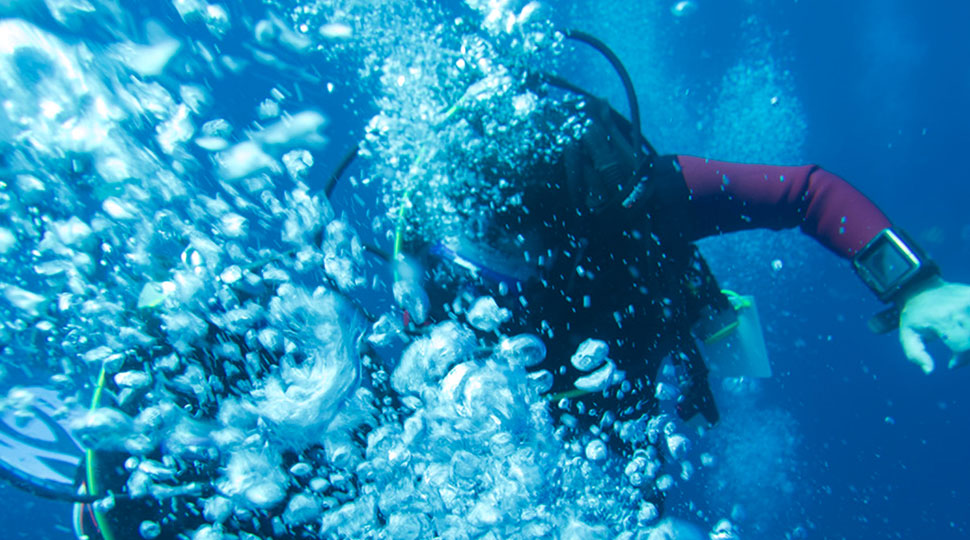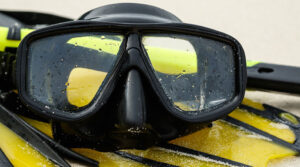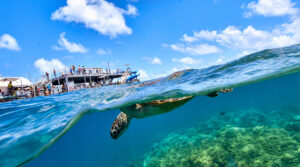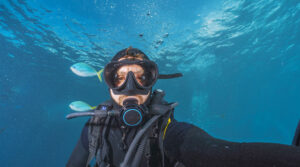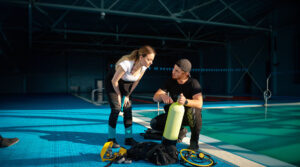As a scuba diver, you might be aware of how important it is to be in peak condition and knowing what foods to avoid when scuba diving and exploring the underwater world.
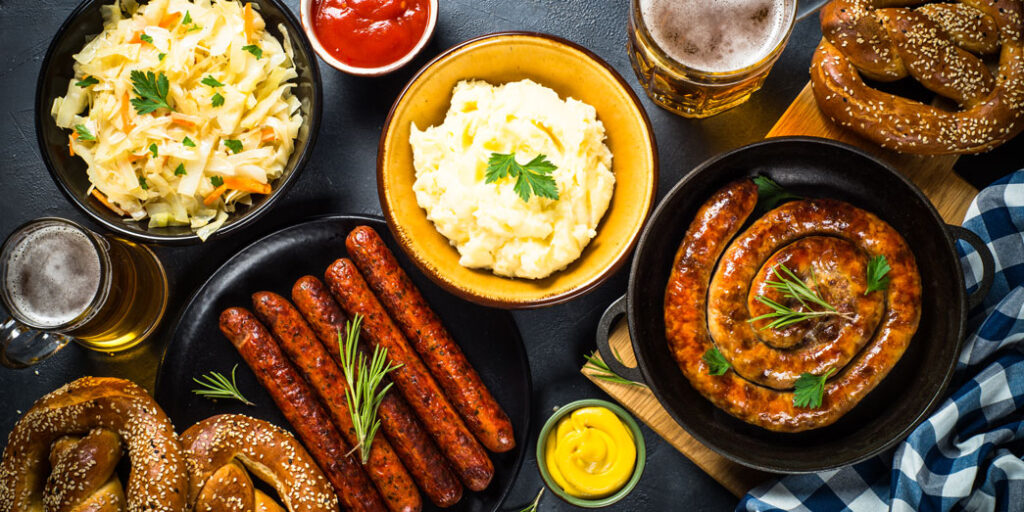
A major factor contributing to your dive performance is the food you eat before heading down into the depths. While you might not think too much about what you eat before a dive, the truth is that certain foods can impact your diving experience quite negatively.
In this article, we’ll discuss some of the common mistakes divers make when it comes to food choices and offer practical advice on the foods to avoid before scuba diving, ensuring a more enjoyable time underwater.
Mistake #1: Eating Too Much Fatty Food
One mistake many divers make when choosing pre-dive meals is consuming too much fatty food. While it might be tempting to have that double cheeseburger or plate of greasy fries, doing so can lead to some unpleasant consequences during your dive, including nausea and other gastrointestinal issues.
Fatty foods take longer to digest, meaning your body must work harder to process these types of meals. This can cause discomfort and, in some cases, lead to feeling sluggish during your dive. In addition, the increase in blood flow to the stomach can cause feelings of nausea when underwater. It is essential to know that your body is already dealing with an increase in nitrogen absorption during the dive, and additional stress from digesting fatty foods can exacerbate the risk of decompression sickness.
Here is a list of fatty foods you should avoid before scuba diving:
- Fried foods (like fries, onion rings, and fried fish)
- Fast food (burgers, fried chicken, and pizza)
- Full-fat dairy products (like cheese, butter, and cream-based sauces)
- Fatty meats (like bacon, sausage, fatty cuts of steak, and processed deli meats)
Instead, opt for meals that are lower in fat and easier to digest, such as lean proteins, whole grains, and vegetables. Good food choices for scuba divers include grilled chicken, baked fish, brown rice, quinoa, and steamed vegetables.
These foods will help you maintain energy without feeling weighed down or nauseous during your dive.
Mistake #2: Eating Too Much Sugary Food
Another mistake to avoid when choosing foods prior to scuba diving is consuming too much sugary food. While it might seem like a quick way to get energy before your dive, consuming high-sugar snacks can actually be detrimental to your experience underwater for a couple of reasons.
First, sugary foods can lead to a short-term energy boost, followed by a crash. This not only affects your energy levels but can also make it more difficult to focus and stay alert while diving. Second, consuming sugary foods can lead to dehydration, as it takes water from your body to help digest the sugar.
Dehydration can increase the risk of decompression sickness, fatigue, and other issues during your dive. This effect is intensified when diving in warm tropical waters, as the body loses water through sweating on the surface and through respiration.

Some sugary foods to avoid before scuba diving include:
- Candy and chocolate
- Pastries, cakes, and other baked goods
- Soda and other sugar-laden beverages
- Fruit juices with added sugar
- Energy drinks with high sugar content
Instead of relying on sugary snacks for energy, choose healthier options like fresh fruit, nuts, or even a protein bar for a more sustained energy release.
You can also opt for natural sugar sources like bananas, apples, or dried fruits, which will give you a steady energy boost without the crash associated with refined sugars.
Mistake #3: Not Drinking Enough Water
Staying well-hydrated is crucial for any physical activity, but it’s especially important when you’re scuba diving. Dehydration can increase your risk of decompression sickness, reduce your mental clarity and focus, and lead to fatigue, which is not something you want to experience underwater.
Unfortunately, many divers don’t drink enough water before their dives, putting them at risk for these issues. To ensure you stay properly hydrated, make it a priority to drink plenty of water leading up to your dive.
Here are some tips on drinking enough water before scuba diving:
- Start increasing your water intake at least 24 hours before your dive, aiming for around 8-10 glasses of water a day.
- Drink 16-20 ounces of water about two hours before your dive to top off your hydration levels.
- Avoid alcohol, as it can dehydrate you further. If you plan on consuming alcohol, do so in moderate amounts and drink extra water to compensate.
- Monitor your urine color; it should be light yellow, indicating proper hydration. Dark yellow or amber-colored urine is a sign that you need to drink more water.
- Consider bringing a reusable water bottle with you to the dive site to stay hydrated in-between dives.
- If you’re diving for multiple days, pay extra attention to your hydration levels and adjust your intake as needed. Prolonged exposure to the sun and salty air can dehydrate you faster.
The Safety Stop
What you eat and drink before scuba diving can have a significant impact on your underwater experience. By avoiding fatty and sugary foods, along with ensuring that you’re well-hydrated, you’ll be able to perform at your best and enjoy your time exploring the ocean depths.
Remember, good dietary habits help contribute to a safe and enjoyable dive, so make sure to prioritize your nutrition ahead of your next underwater adventure.
A well-balanced diet and proper hydration will not only improve your dive experience but also benefit your overall health and well-being.

